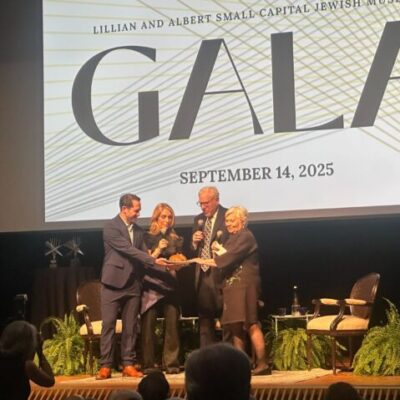Opinion
Do We Suffer from Micro-Inequities?

By An Unnamed Community Professional
I work in the Detroit Jewish Community. I left a high-paying corporate job more than five years ago to shift my career into something more meaningful. While culture shocked at first, I was quickly embraced and lauded by peers for making the shift. I felt proud of myself. While money matters, happiness, and fulfillment felt more important. I had found my happy place.
Shifting from the for-profit to the nonprofit world, I immediately noticed differences (e.g., fewer resources, less money, more opinions). I was (and still am) continually impressed by all the heart and drive to help our community. I fully believe and support the mission of Jewish Federation and its affiliated agencies. However, with all the passion that exists, there is one pervasive issue that has continually surprised me.
My female co-workers and I constantly experience “micro-inequities.” These are small messages, gestures, and statements that devalue and discourage an individual in their workplace. Micro-inequities are often subtle and hard-to-prove, frequently unconscious, and occur wherever people are perceived to be ‘different.’ In this case, different is female. And while certainly not exclusive to the Detroit Jewish Community, the regularity with which I have observed this behavior is simply shocking.
I am part of a team within my agency, with a few men and a few women. Yet the women are consistently asked to book meetings, take minutes, and perform menial tasks more than our male counterparts on the team. One female co-worker was told that she needs to “smile more” and that she doesn’t look “happy enough” around the office. A male co-worker once referred to two females that worked for him as “his girls.” Another female co-worker was verbally berated by the CEO in a way that I have never heard him speak to a man.
During an early morning board meeting, I was setting up a presentation and my male co-workers were schmoozing. When the CEO realized that breakfast was not ready on time, he looked at me and said, “go into the kitchen and help them get breakfast ready.” Of all the staff members that were there, I was actually the only one not standing around as I was trying to prepare everything for the daily meeting. And yet I, the lone female at the time, was the one directed to go to the kitchen.
Moreover, while the staff at my agency is mostly female, the board is two-thirds male. Successful businessmen make comments like, “good for you, you actually know the numbers,” and “nice job ordering the food.” Female board members have been referred to as “overly emotional” and thus, have had their opinions dismissed behind closed doors.
I know these are not the #metoo moments that other females have shared in the last couple of years. I’m in no way comparing the gender bias I’ve experienced to the atrocious workplace behavior associated with that movement.
These are subtle, but mighty, expressions of bias. Bit by bit, they peck away at the morale of the female employee. Motivation, trust and perceived value decline with every comment. Personally, they make me feel small and unimportant.
Perhaps this is analogous to what we’ve read in the Bible, which doesn’t present one unified view of women. At times, women are presented as men’s equals – as in the first creation in Genesis. At other times, they are secondary in status – as in the laws which place women under the authority of their husbands and fathers. However, Jewish law has never been static; it has adapted across the generations. It has always been influenced by the world in which the Jews live. I grew up with Abraham, Isaac, and Jacob, but now my kids have Sarah, Rivkah, Rachel, and Leah. Change is possible.
Just as Judaism has changed in its views of feminism, so must we. We must stop with the subtle machismo. We must detect and eliminate micro-inequalities and focus on true gender equality. This is no longer the Mad Men era. Let’s stop looking only at women to coordinate the lunches or meetings.
And, even as I write this, I’m imaging the eye-rolling of some of the men who read this article. There will be comments made, “oh, now I cannot ask you to order the food…, right?” My answer: Yes, we can order food, but so can you.
I ask the same men to pause and consider how they want their daughters and wives treated in the workplace. What if the women they love feel constantly marginalized and devalued simply because of their gender? From experience, I can tell you it’s a horrible feeling. It reverberates through the entire organization and impacts productivity, drive and efficiency.
Fighting gender bias starts with knowledge and understanding, and that’s why I’ve written this letter. To be heard. To shed light on this issue. Maybe to start a conversation.
The Detroit Jewish Community is one of the best, no question. There’s also no doubt that women are a critical part of this community, the Jewish Federation, and its agencies.
With greater equality comes greater success. So, imagine, for a moment, how much more we can accomplish, how many more people we can help, and how much greater we can all be – with total equality.

 Add EJP on Google
Add EJP on Google









